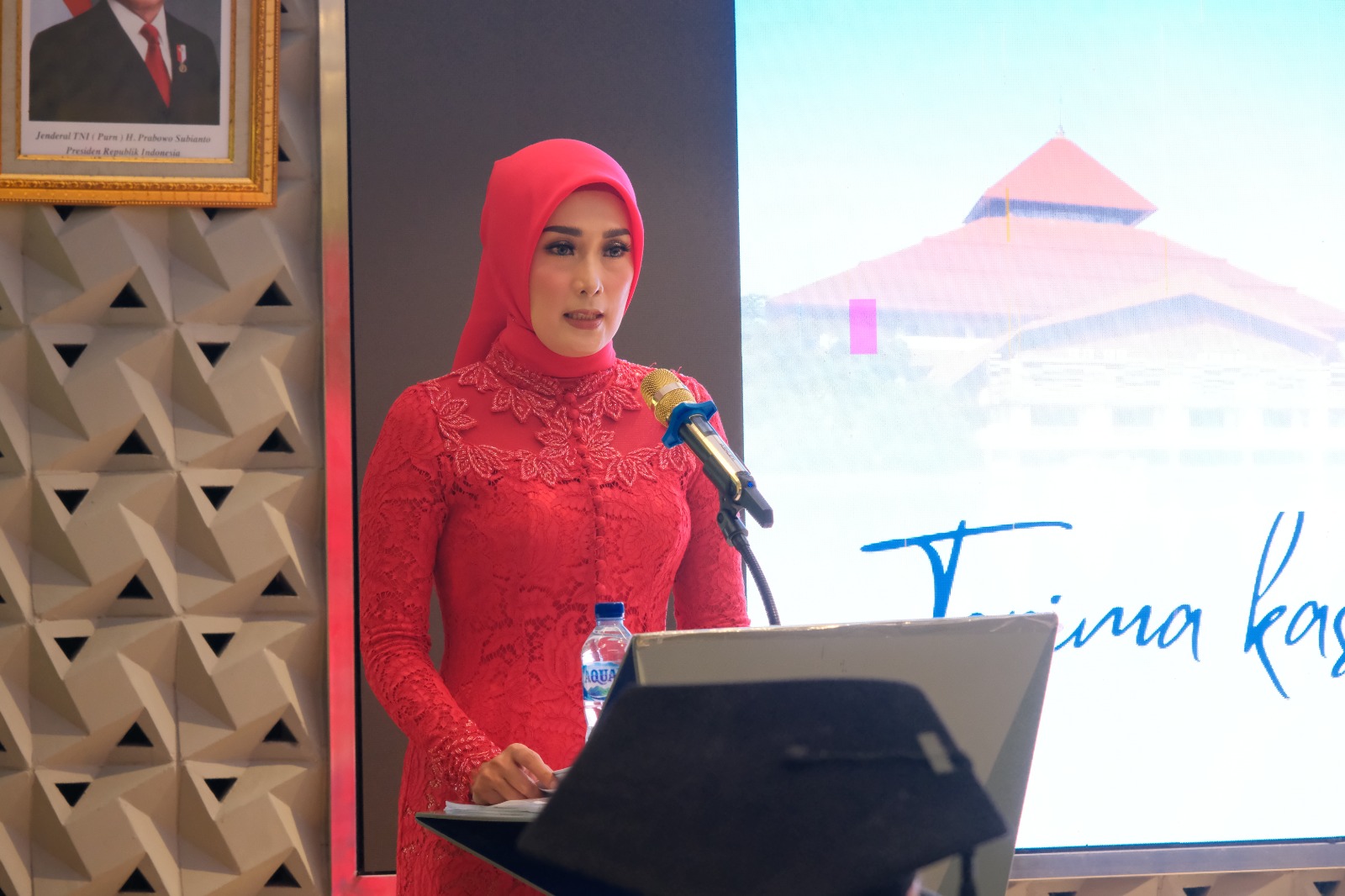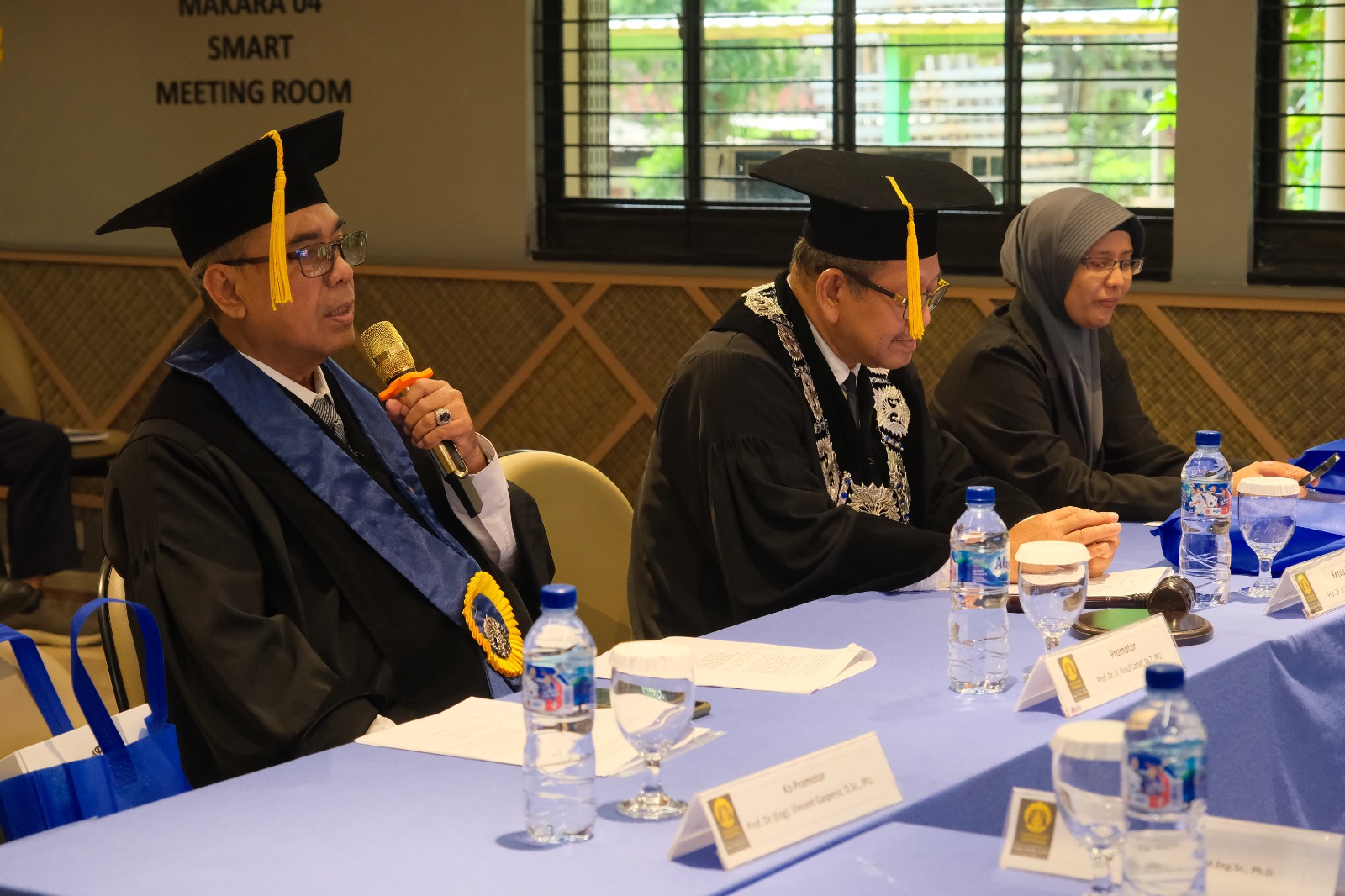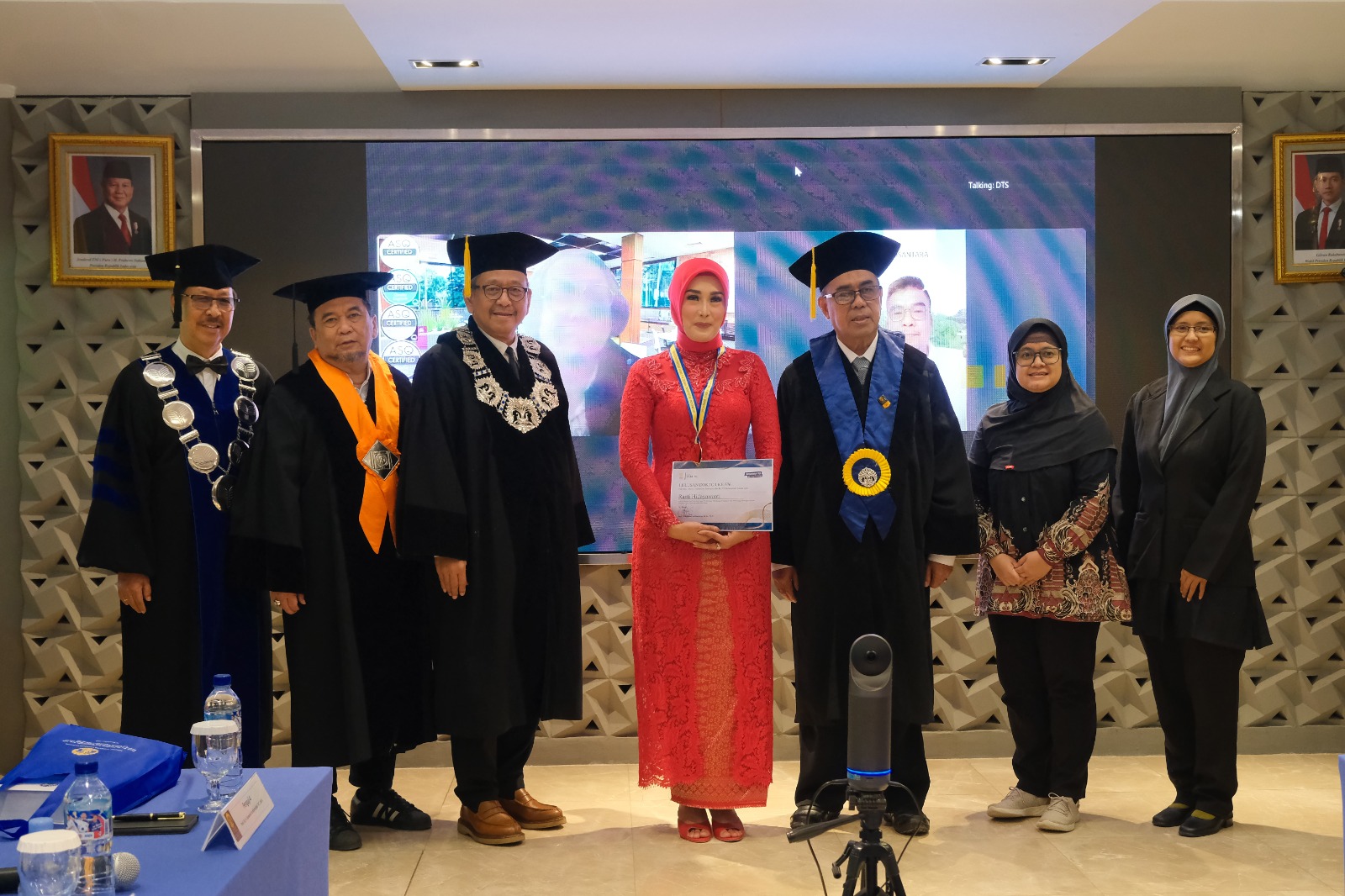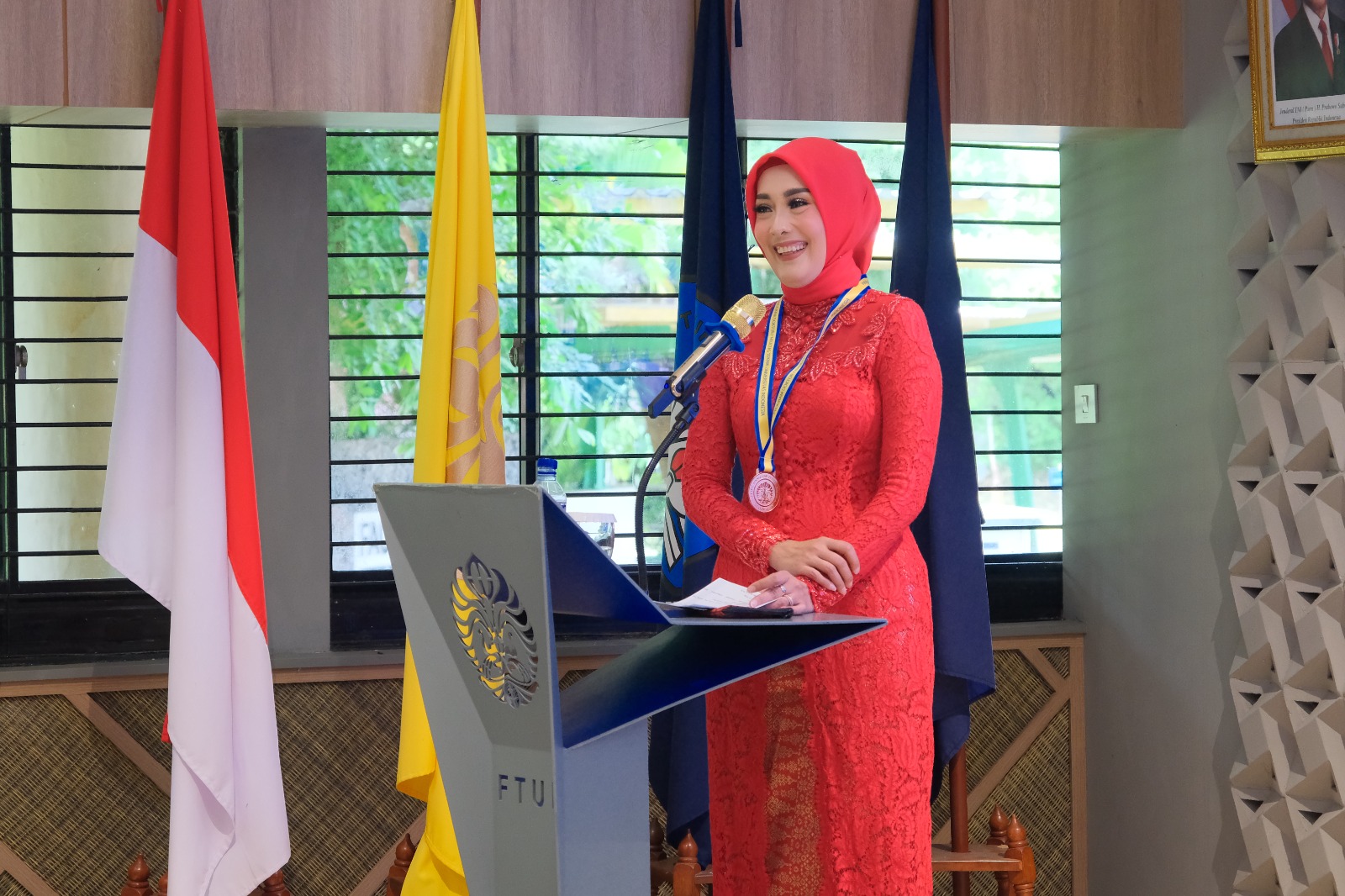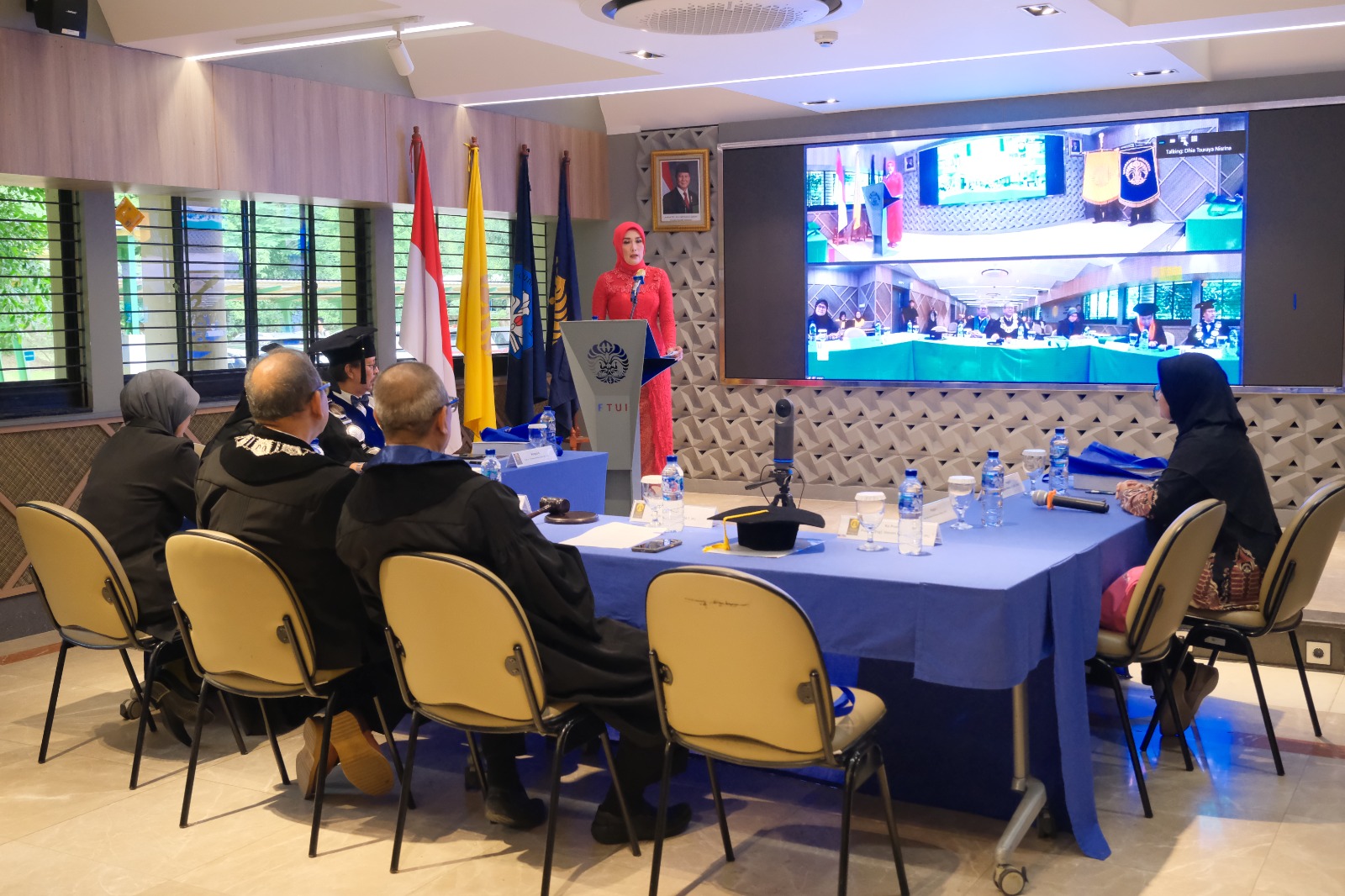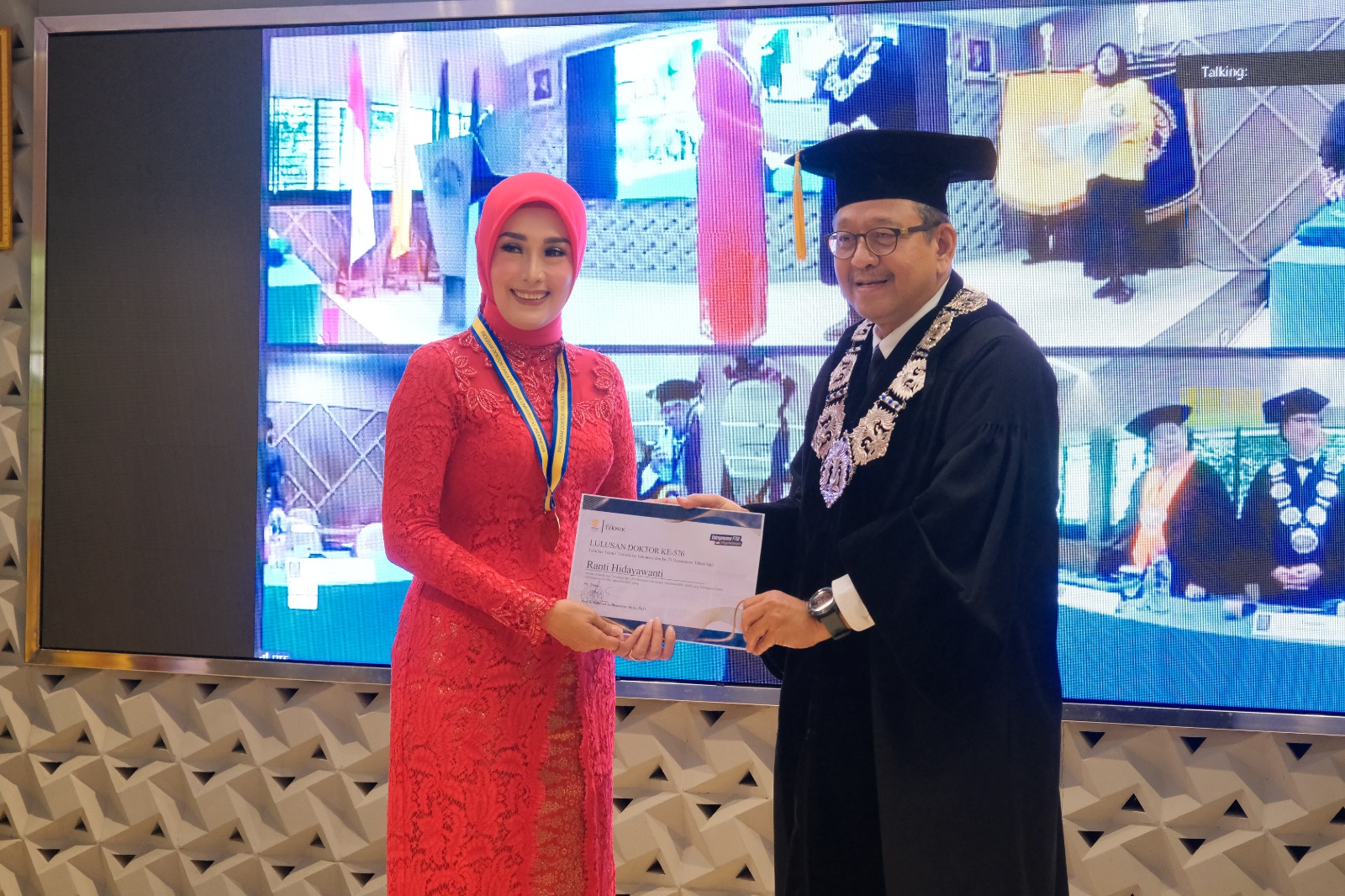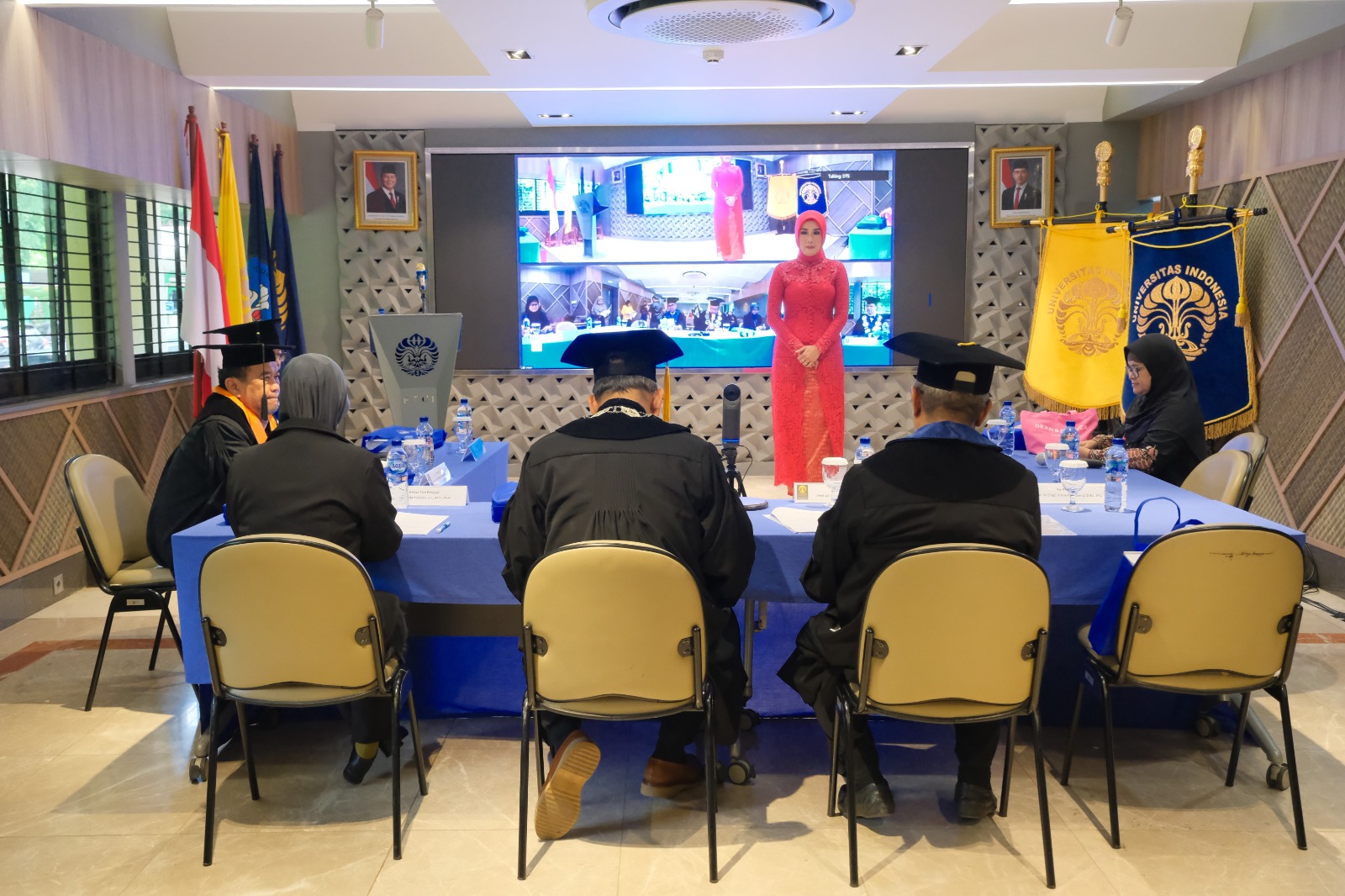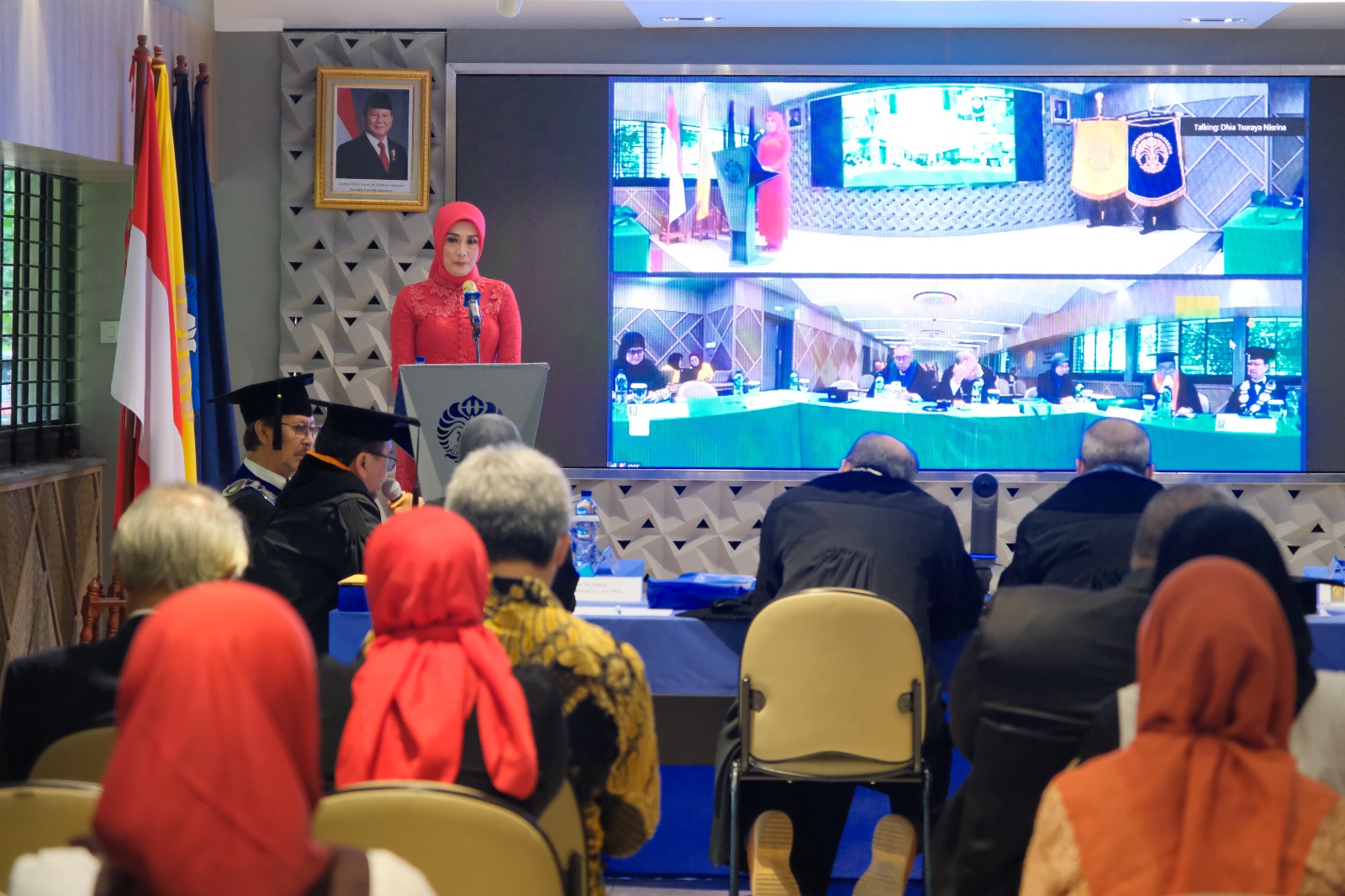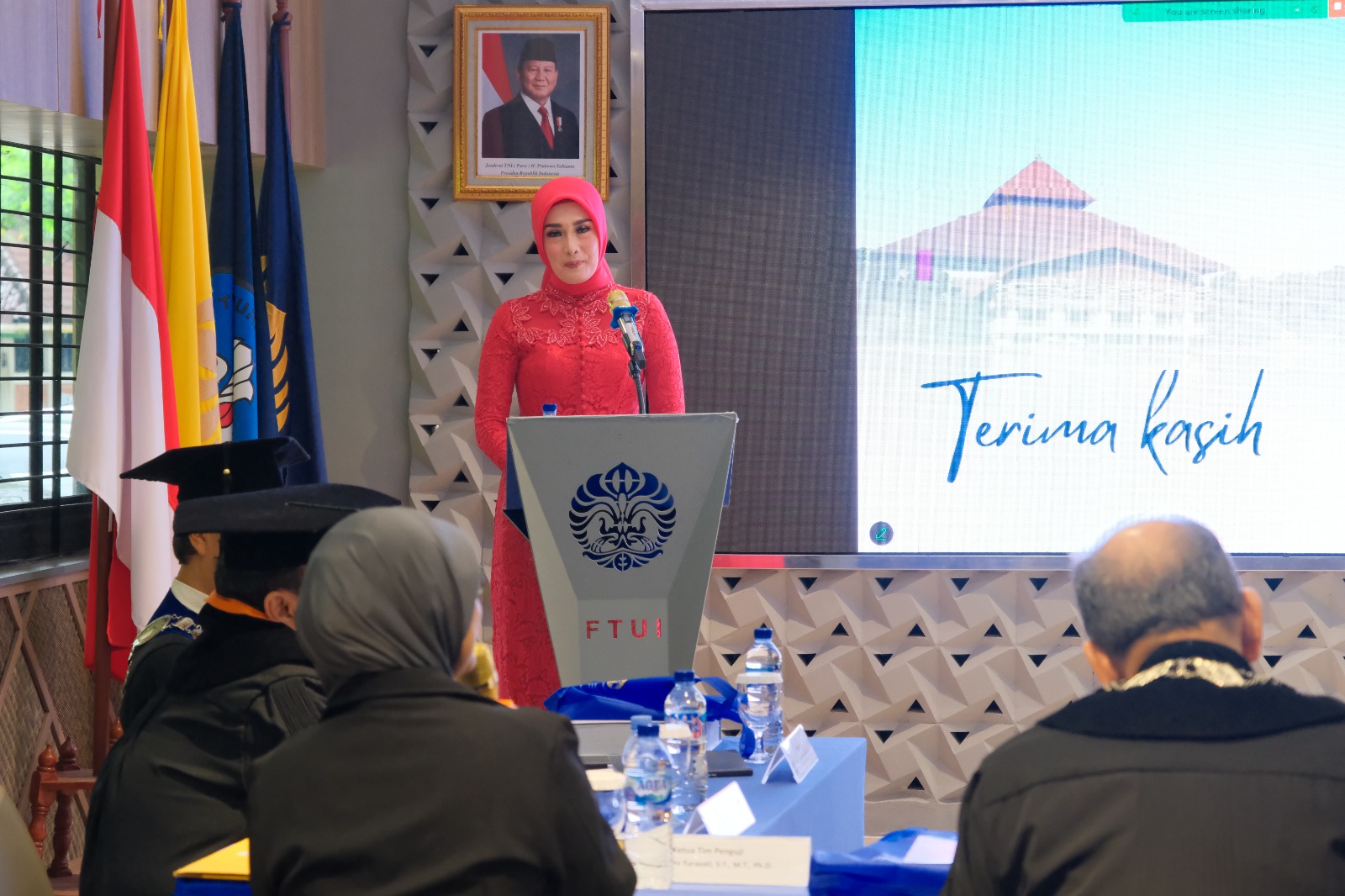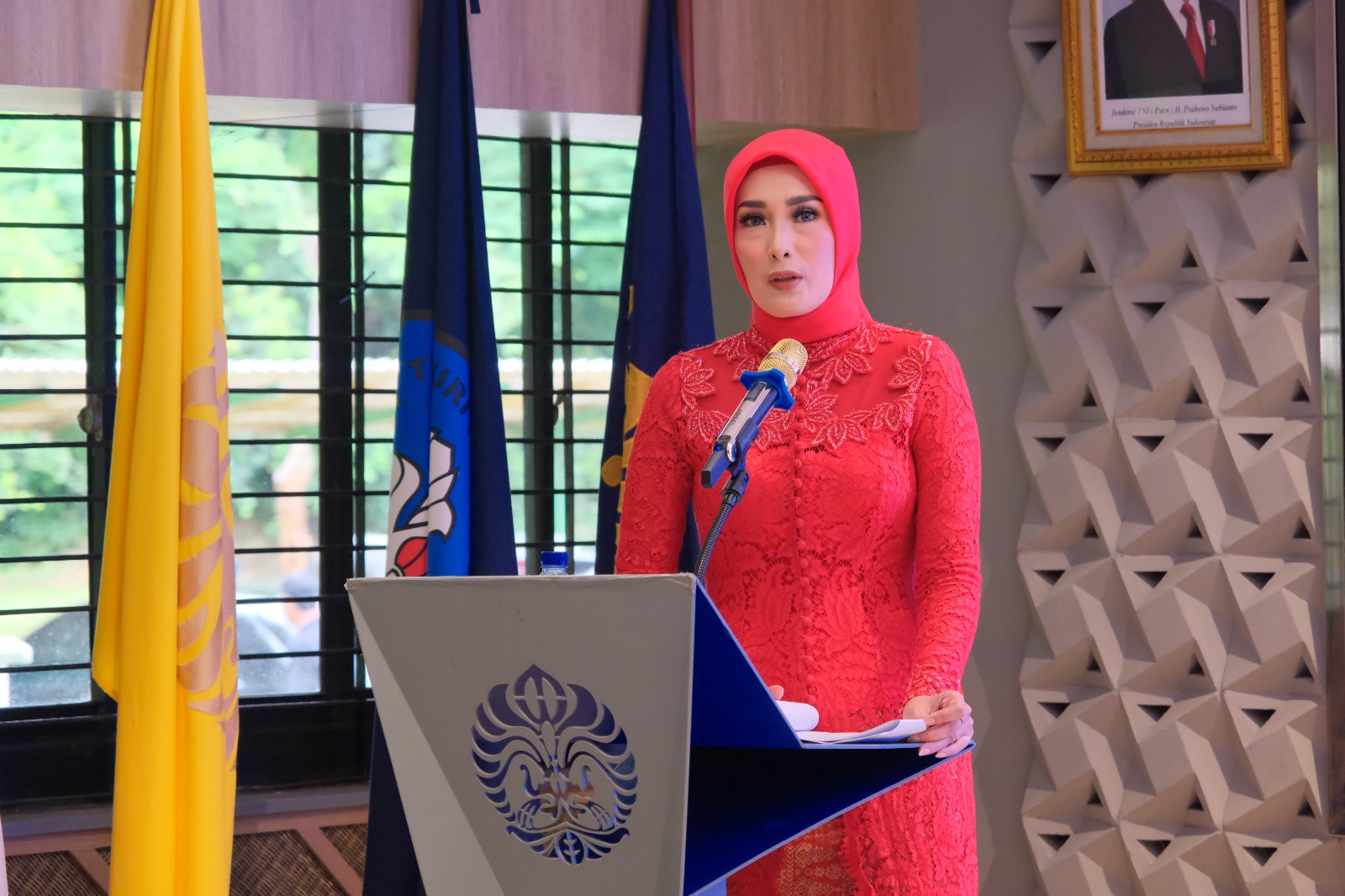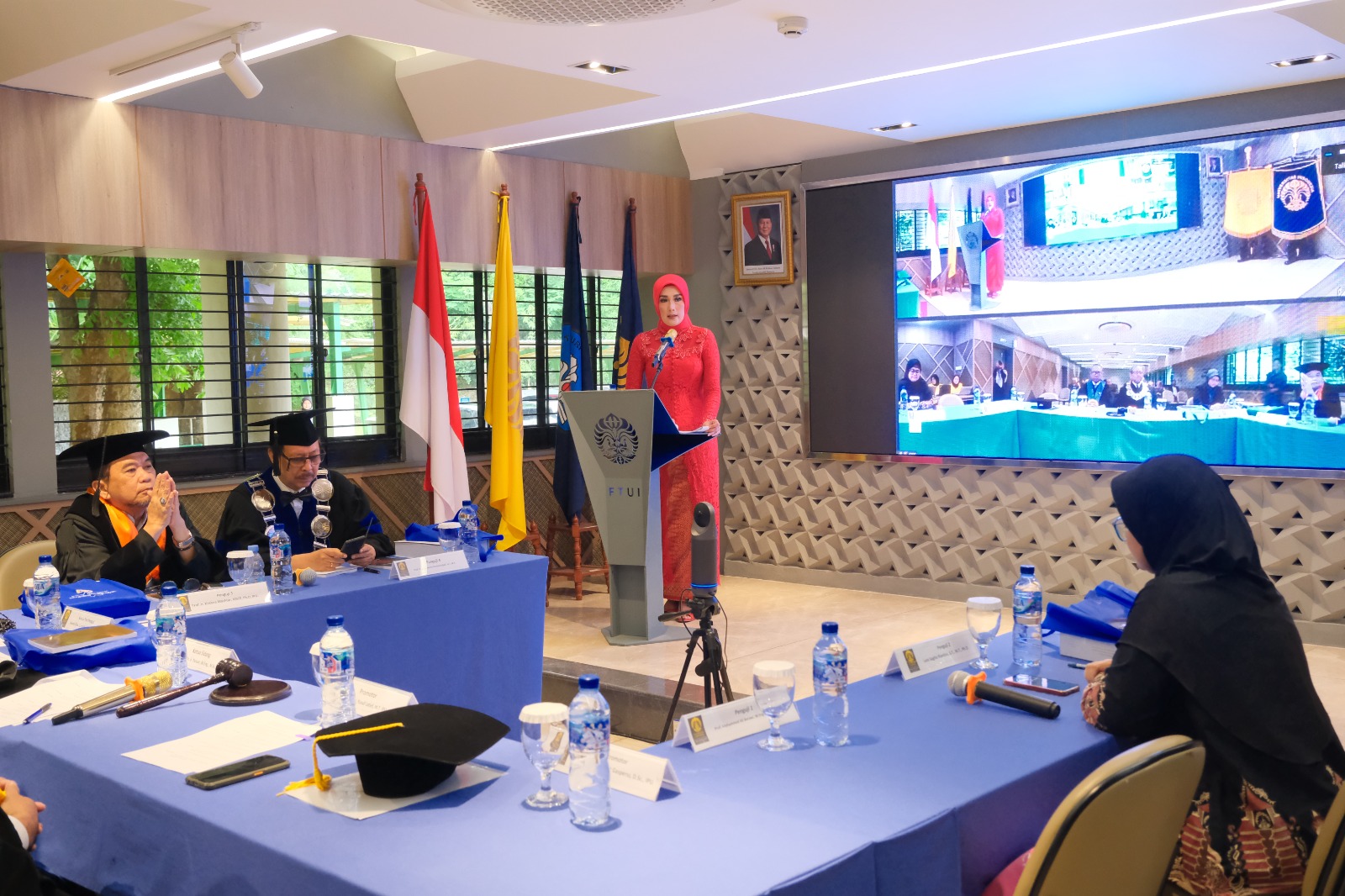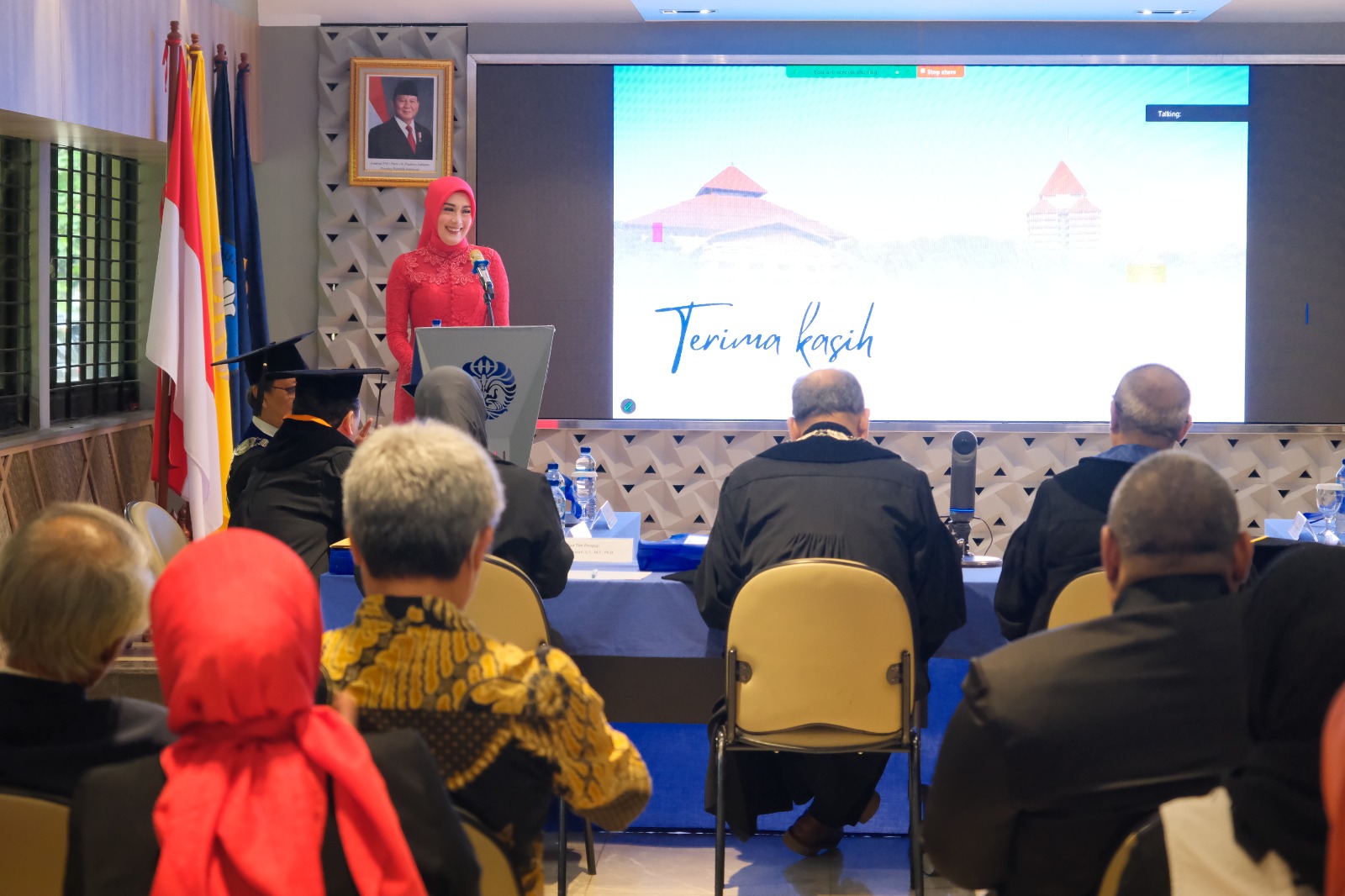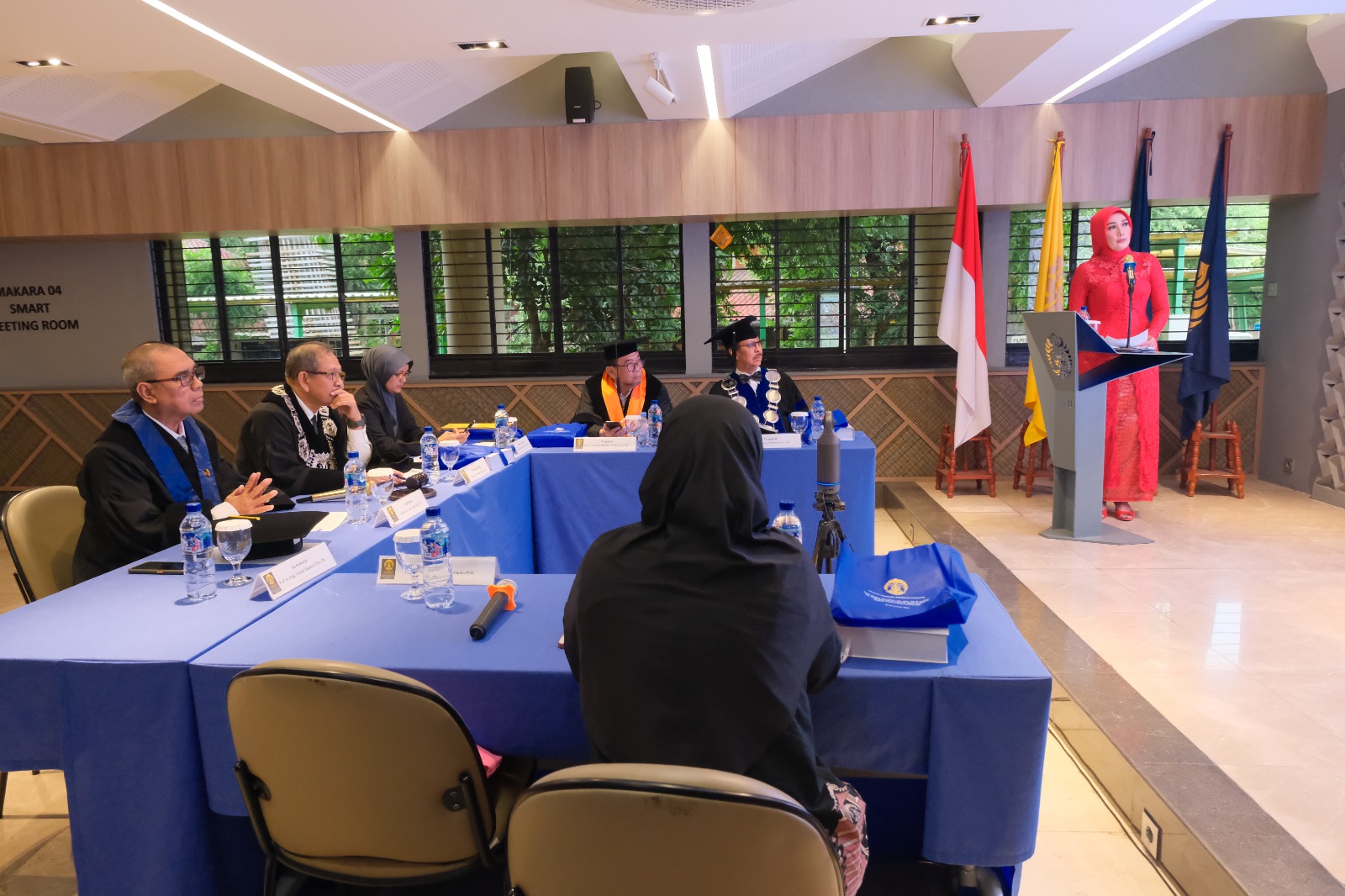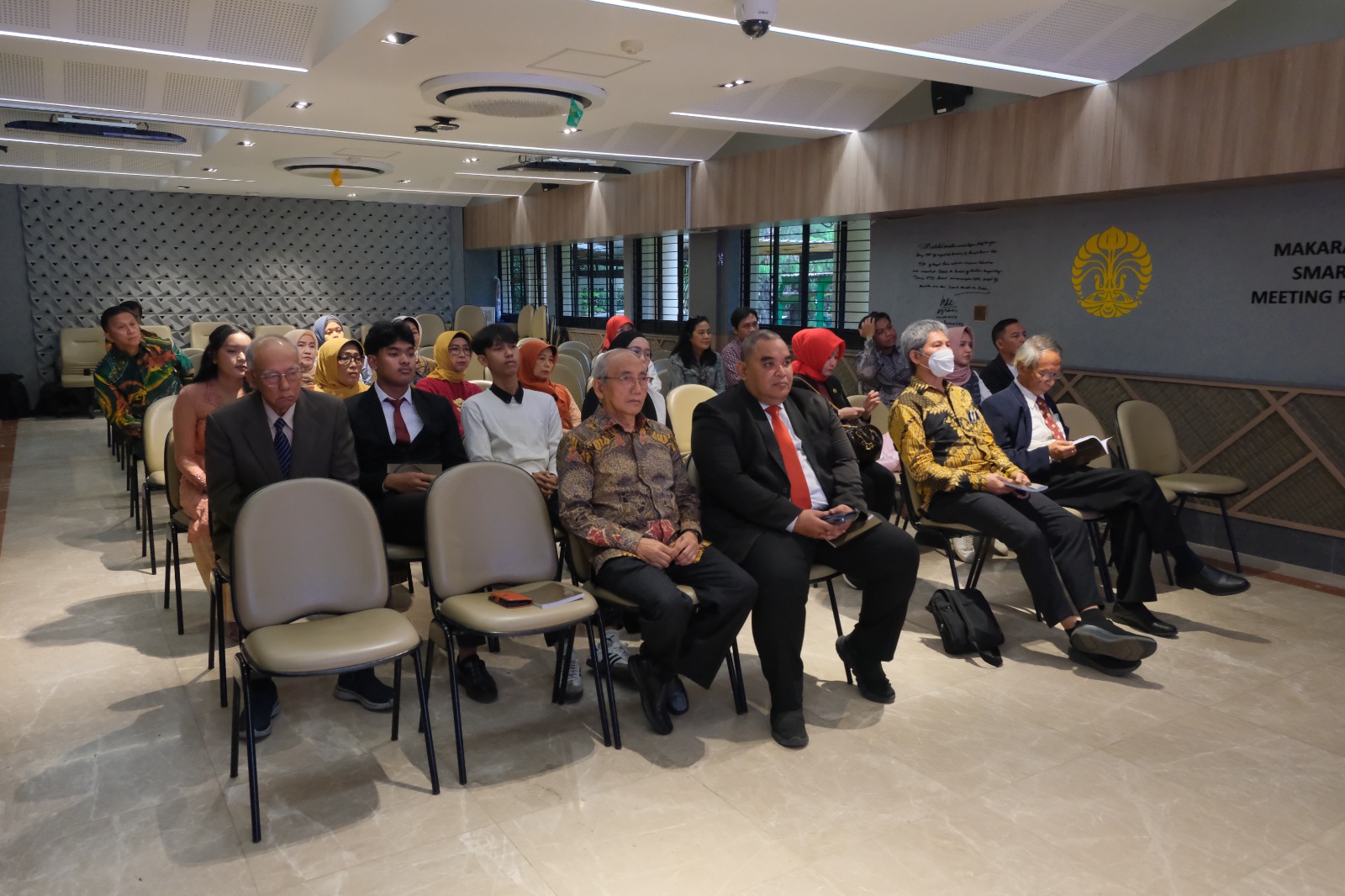The precast concrete industry in Indonesia continues to experience rapid growth, particularly in the production of spun piles. These cylindrical piles, produced through a high-speed spinning concrete casting process, are known for their strength and heavy load-bearing capacity. Their superior performance makes them the preferred choice for large-scale projects, including bridges, high-rise buildings, and port infrastructure.
However, this industry faces significant challenges, including increasing competition, demands for efficiency, and production defect risks. Addressing these issues, Ranti Hidayawanti, a Faculty of Engineering, Universitas Indonesia (FTUI) doctoral student, developed a more systematic and data-driven approach by adopting ISO 56002 as an innovation guide. Her dissertation, titled “Risk-Based Spun Pile Methods and Technology Innovation Using an ISO 56002 Approach Integrated with Information Systems to Enhance Competitiveness,” was presented as part of her doctoral promotion requirements.
The doctoral promotion occurred on December 30, 2024, at the Smart Meeting Room, FTUI Dean’s Building. Ranti Hidayawanti earned her Doctorate in Civil Engineering with cum laude distinction and a GPA of 3.96, making her the 75th doctoral graduate from the Department of Civil Engineering and the 576th from FTUI.
Ranti’s approach focuses not only on technology but also on managing people, tools, and procedures. One of the biggest challenges was identifying high-risk processes and improving their workflows. “For example, the Cutting & Heading and Stressing & Spinning stages had medium to high-risk levels. These processes are critical, as errors at these stages would impact subsequent production phases,” she explained.
The research delved into the production stages of spun piles to identify critical points contributing to product defects. One key finding revealed that the highest risk lies in the early stages, with Cutting and heading posing an 84% risk and Stressing and spinning a 59% risk. These stages are essential in determining the final product’s quality and prioritizing performance improvement in these areas.
Ranti developed Standard Operating Procedures (SOPs) using the RACI (Responsible, Accountable, Consulted, Informed) matrix to address this. These SOPs enable real-time monitoring of the entire production process, allowing potential issues to be identified and resolved immediately without waiting to complete the process. This approach simplifies problem identification, minimizes waste, and enhances product quality consistency.
The study highlights the importance of integrating information technology into production processes and strengthening SOPs. Technology acts as a tool and a foundation for improving efficiency and risk management. Digital systems allow for monitoring production activities internally and externally, allowing companies to identify weaknesses more quickly and accurately.
“With better management through digital SOPs, companies can ensure that every production stage meets the required standards. The result is more consistent products with significantly lower defect risks,” said Ranti.
“I hope this research can offer real solutions for the industry. ISO 56002 is not just an international standard but a tool to help companies improve their workflows, foster sustainable innovation, and enhance competitiveness. If implemented correctly, this approach will benefit the companies and customers with better and more consistent products,” Ranti added.
The study concludes that successful spun pile production relies on advanced technology, structured risk management, qualified human resources, and integrated SOPs. The ISO 56002-based approach offers a strategy that enhances production efficiency while opening vast opportunities for sustainable innovation in the precast concrete industry.
Acting Dean of FTUI, Prof. Mahmud, S.T., M.Sc., Ph.D., expressed high appreciation for this research. “This study is highly relevant to the current needs of the industry. Moreover, it demonstrates how innovation based on international standards can be applied to solve practical field issues. With proper technology and risk management, I believe Indonesia’s spun pile production can become more competitive in the local market and globally,” he stated.
The doctoral promotion was led by Prof. Dr. Ir. Yanuar, M.Eng., M.Sc., with Prof. Dr. Ir. Yusuf Latief, M.T., IPU as the supervisor and Prof. Dr. (Eng) Vincent Gaspersz, D.Sc., IPU as the co-supervisor. The examination committee included Dr. Ayomi Dita Rarasati, S.T., M.T., Ph.D., Prof. Mohammed Ali Berawi, M.Eng.Sc., Ph.D., Prof. Ir. Krishna Mochtar, MSCE, Ph.D., IPU, Prof. Dr. Ir. Sarwono Hardjomuljadi, MT, MH, and Dr. Leni Sagita Riantini, S.T., M.T., Ph.D.
***
Public Communications Office
Faculty of Engineering Universitas Indonesia

